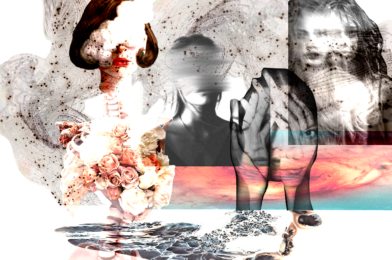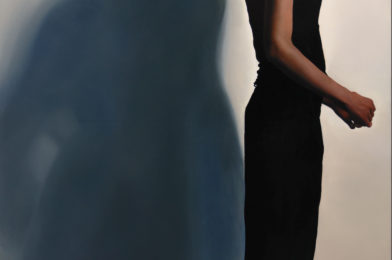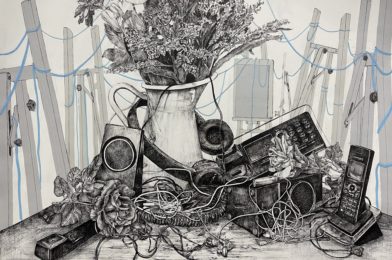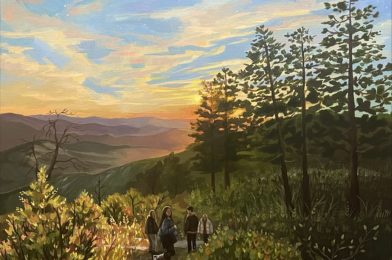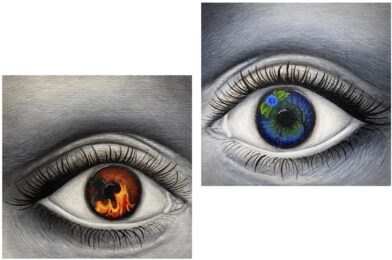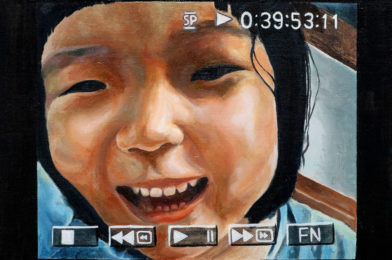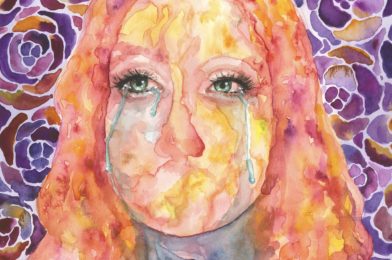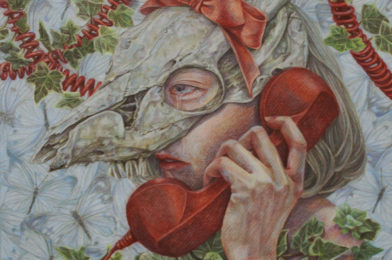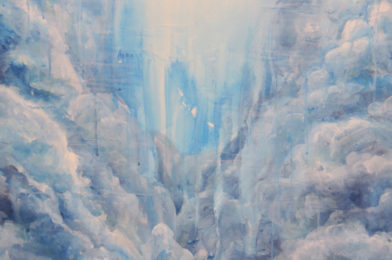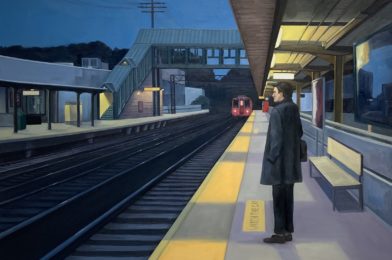An Astronaut’s Day-Dream
Dad is the only man on the moon.
Preparing for his solo ascent
into the cold winds and their tides, for the moon-gulls and his precious french fries
spreading his space blanket
by the pod. There aren’t any clouds
to pass over the sun. There isn’t any fire for warmth.
So he watches the stars roll, and heats up by naked sun rays.
His highschool friends get out their telescopes; ready
to tell him he’s gone too far.
But Dad’s gotten out his classical guitar
to hear the notes bounce around the system. Their calls are mute.
And he’s playing
awful slow. Every song is a sad song on the moon.
You were Parker, at Wells Fargo
escaping 2008, work was unfair
to the clients, made you red giant, sun brother. Were you
unhappy. Were you scared? You were
Jimmy to your grade school friends, playing baseball
never much uttering a word. Only saying
(to my Uncle Joe) We suck.
James to your first coworkers
you were sifting the cabinet, working the cash
driving to patients with bottled hope in an old van, blue buttons
beer belly, and armed with an unfinished degree.
It wasn’t much good. But finishing school was worse.
Parker, there’s a runaway meteor headed to you. The intercom spouts. Like a faraway echo,
you toast a melting popsicle to the sky. There’s no one to run from
and nothing to chase.
I try to jump up high, to give you a sign
but you always just nod and wink.
You are Dad
I’m held in your arms, witness fighting
to keep us from problems, like yours
dropping out, smoking, drinking and
being wholly ignored. There wasn’t much to rebel
and no rebellion for that matter. That was worse.
I know we are a war. I know we are made that way
I know we are a normal family, and now
I know we are a family star, spilling in the crowded galaxy
like green-yellow sand drifting quietly with the sea.
If I Were A Grizzly Bear
I’d need two seats on an airplane
a job with hibernation leave
steel toed boots
and heavy berry shampoo.
I’d work as a cook
but get sacked
for raiding the fridge.
Hanging up my long hair net.
I’d be accepted to any college for diversity, scrawl
on every page, and break every pencil.
Though academics are no use to Grizzly bears.
I wouldn’t fit under any umbrella
but walk, (two feet), claws clacking
the sleek asphalt. Thinking,
all the time, I have four feet.
I am a stranger in a raincoat,
filling in with man; unbelonging.
Too big or too tall,
house-inhabiting; wild cave completely kept from my mind.
There’s a beehive in my backyard. A strong spruce keeps
it safe, I have a fear of heights anyway.
I’d find it in a TV. Bears hunting
dancing their river dance. Eating hungrily
hopefully, saving for the winter. Holing up
and snoozing the cold away. Resting again
awaiting the sweet spring – or the rich summer.
The hive, buzzing, bumbling,
at the top of the tree; I’m afraid.
But honey is sweeter
the higher you are.
And I’m in love with
eating honeycomb
The spruce perfume reminds me
I used to play guitar
But now the wood’s scarred, and I snap strings easily.
So I leave it by the tree
escape to the woods beneath
the newly wed dress of fog.
I Am Mushroom Food
I won’t be buried in-case,
or protected by gray cement
meant to defend
the colorful plate I am, awaiting
my final mold.
In eastern Oregon,
below the dirt,
beneath the green canopy sky,
tangled with the roots,
there is a thing
a thing so old,
it might be the oldest
Armillaria Ostoyae
the fungus that lives
and grows
and devours
and whispers wisdoms to each other
I want to know.
The day when I die
I will be buried
next to the oldest thing
the pinkish-white roots extending their helpful arms
around me. They dig
far into the ground; descending
to tap the wisdom wells, hoping
I’ll be full on learning and they’ll
be full of nutrients.
After I die I’ll be a new parent
sporing young hungry
honey mushrooms; I’ll be proud
when they find their way in the spruce.
When they deal
by breaking down every
unanswered question,
familiar meaning,
cruel hand and
bring us together for once.
Will lives in Hamden, CT, a student of Hamden High School and ECA. He has received two silver keys from Scholastic Art and Writing Awards for his writing. Will aspires to be a full-time poet and singer songwriter, and spends most of his time on his guitar, reading, doodling, walking or thinking.
Visual Art by Anastasiia Terekhina
Tagged : Astronaut / poems / poetry collection / Willem Parker
